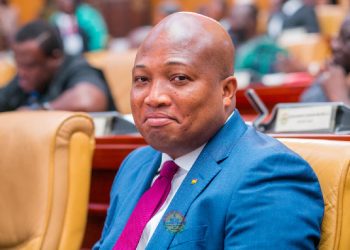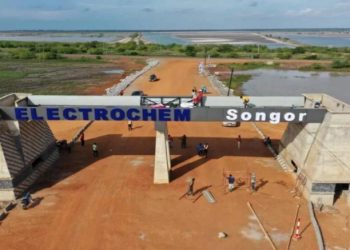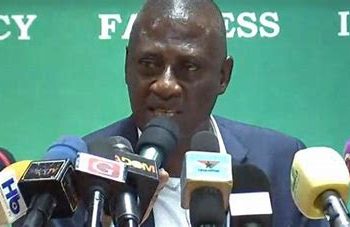The Ranking Member on the Mines and Energy Committee, John Jinapor has justified the minority caucus’ warning to the government to abort plans to use proceeds from the TEN oil field as collateral for a $431 million loan facility from LITASCO.
Speaking in an interview on Eyewitness News on Citi FM in Accra on Wednesday, he warned that the intended move by the government was illegal.
Mr Jinapor also vehemently reiterated that Parliament had not approved the Ghana National Petroleum Corporation’s (GNPC) request to secure the loan as it had asked the corporation to lay before the house the terms and conditions of the agreement.
As such, he told Umaru Sanda Amadu “It is before the board for final approval to sign off. And we owe it a duty to the people of Ghana to stop that. If we do not push them to pull a break, by next week they will sign off this agreement, and it will become binding on the state… We owe it a duty to stop them and that is exactly what we are doing.”
The Minority in Parliament early on urgently called for a halt to the government’s plans to utilise proceeds from the TEN oil field as collateral for a $431 million loan facility from LITASCO.
The Minority asserted that this arrangement is illegal and expressed concerns that the TEN oil field would be required to produce a minimum of 3.8 million barrels of crude oil each year for LITASCO as part of the loan agreement.
Speaking to Journalists on Wednesday, Mr Jinapor highlighted that despite Parliament’s rejection of the Ghana National Petroleum Corporation’s request to secure the loan until the terms and conditions of the agreement were provided, the presidency has directed GNPC to seek board approval for the loan without parliamentary consent.
“To our utmost shock, the minority side has become aware that the presidency is using coercive force to compel the GNPC to proceed and execute this loan agreement without parliamentary approval,” Jinapor said, adding “This is unconstitutional, this is unlawful and this is a blatant disregard to the directive and resolution of Parliament.”
He warned that the move would amount to an unconstitutionality if GNPC goes ahead with the loan agreement without parliamentary agreement.















